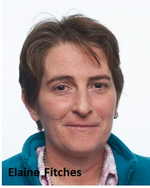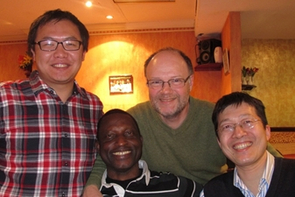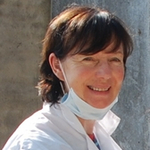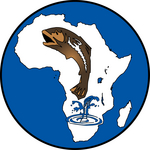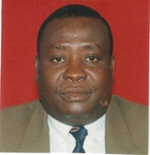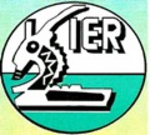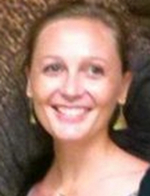FERA is involved in the project management and scientific aspects of PROteINSECT. Elaine Fitches is the co-ordinator of PROteINSECT. Adrian Charlton is the leader of Work Package 3, which is examining the safety and quality of insects and meat derived from animals and fish that have been reared on insect protein containing diets. FERA is also contributing to Work Package 1 examining insect production systems.
CABI coordinates and supports the activities on the development of fly production systems (Work Package 1). This includes the establishment of a database on fly rearing methods and fly production for animal feed, the development, optimization and characterisation of fly rearing systems and the provision of maggots for the other work packages . CABI also facilitates collaboration between European, Chinese and African collaborators.
Nutrition Sciences N.V. leads WP2 within the PROteINSECT project. This workpackage deals with insect protein processing technologies and livestock feeding trials in casu pigs, poultry, and fish. Livestock feeding trials are organized in Europe, China, and Africa.
The overall objective of KUL is to facilitate the design of optimized and sustainable insect
production systems that are suitable for adoption by small- and large-scale operations in
different socio-economic and bio-physical environments. To achieve this objective, the KU Leuven will assess environmental, social and economic life-cycle impacts of insect-borne animal feeds (including uncertainty and sensitivity). In order to assess the utility potential and applicability of this novel protein source, impacts of insect product life cycles will be compared with the ones of conventional feeds.
Minerva leads the development of the Pro-Insect Platform across Europe with the aim of driving legislation and regulation change to include the use of protein from insects in animal feed and ultimately for human consumption. Minerva also leads on media communications for the project. Rhonda Smith, Kate Viggers and Rosie Pryor work on PROteINSECT.
eutema GmbH- DI Georg Melzer-Venturi leads the dissemination activities of PROteINSECT. This involves engaging a wide range of stakeholders, including the feed and food industry, consumers, and the general public.

Grantbait is one of UK’s leading specialist fish-bait breeders with a production
capacity of 8-10 tonnes of maggots per week. Grantbait will be involved in WP1, setting up pilot scale breeding of fly species in the UK, including the provision of larvae for feeding trials in WP2 and quality and safety analysis in WP3.
Guangdong Entomological Institute (GEI) is one the two China partners of PROteINSECT. GEI is involved in -fly rearing and protein processing methods -setting up and/or development; maggot producing; and insect protein based- poultry/shrimp feed trials in China.
HZAU is involved in establishing and improving insect rearing systems and animal trials with chicken and fish.
Fish for Africa-Ghana (FfA) is one the two African partners of PROteINSECT. Together with the University of Stirling, it is involved in fly rearing and protein processing methods setting up and/or development; fly rearing and maggot producing; insect protein-based fish feed trials in Tilapia in Ghana. FfA, together with stakeholders (government, animal feed and fish production industries, consumers and the general public) is also involved in the development of a legislation on insects and insect protein used in animal nutrition in Ghana.
IER is responsible of the development of fly-rearing and maggot production systems in Mali (WP1). It will also carry out feeding trials with poultry (WP2), be involved in WP3 through various analyses and it will disseminate the findings of the project in Mali.
The Institute of Aquaculture (IOA) are responsible for developing an insect production system in Ghana. PhD student Emilie Devic is working with the Fish For Africa partner and also carrying out subsequent trials using insect larval meal as a replacement for fish meal for a commercial tilapia farm in Ghana.


